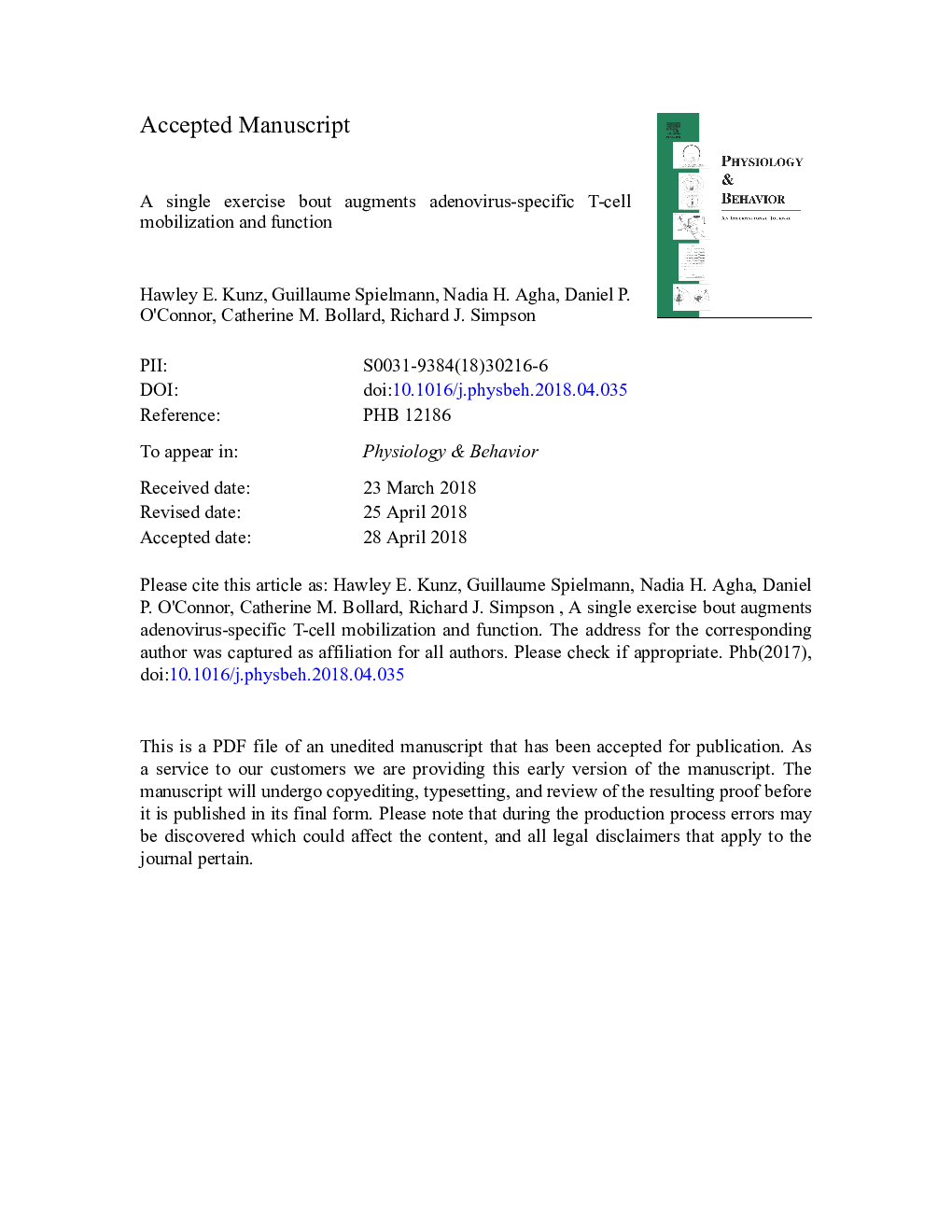| Article ID | Journal | Published Year | Pages | File Type |
|---|---|---|---|---|
| 8650233 | Physiology & Behavior | 2018 | 44 Pages |
Abstract
Adoptive transfer of virus-specific T-cells (VSTs) effectively treats viral infections following allogeneic hematopoietic stem cell transplantation (alloHSCT), but logistical difficulties have limited widespread availability of VSTs as a post-transplant therapeutic. A single exercise bout mobilizes VSTs specific for latent herpesviruses (i.e. CMV and EBV) to peripheral blood and augments their ex vivo expansion. We investigated whether exercise exerts similar effects on T-cells specific for a NON-latent virus such as adenovirus, which is a major contributor to infection-related morbidity and mortality after alloHSCT. Thirty minutes of cycling exercise increased circulating adenovirus-specific T-cells 2.0-fold and augmented their ex vivo expansion by ~33% compared to rest without altering antigen and MHC-specific autologous target cell killing capabilities. We conclude that exercise is a simple and economical adjuvant to boost the isolation and manufacture of therapeutic VSTs specific to latent and non-latent viruses from healthy donors.
Keywords
PBMCPHAEx vivo expansionAdValloHSCTPhytohemagglutininVSTβ2ARRPEBLTβ2 adrenergic receptorAdenovirusEBVExercise immunologyEffector memoryCentral memoryrating of perceived exertionPeripheral blood mononuclear cellcytomegalovirusCMVViral infectionsEpstein-Barr virusAcute stress responseAllogeneic hematopoietic stem cell transplantation
Related Topics
Life Sciences
Biochemistry, Genetics and Molecular Biology
Physiology
Authors
Hawley E. Kunz, Guillaume Spielmann, Nadia H. Agha, Daniel P. O'Connor, Catherine M. Bollard, Richard J. Simpson,
